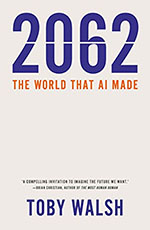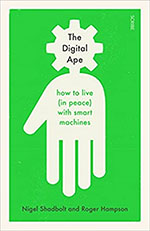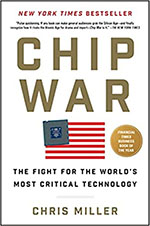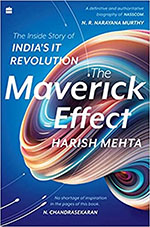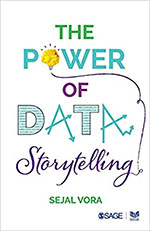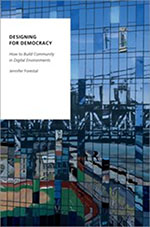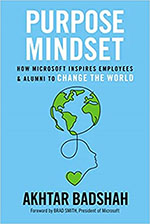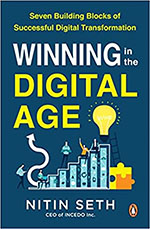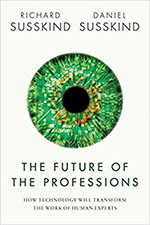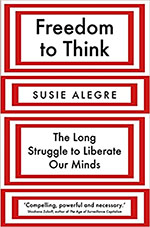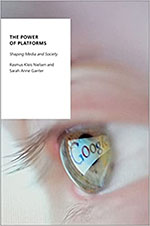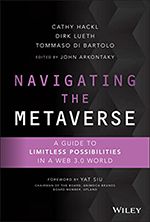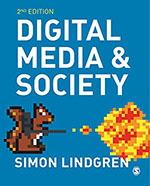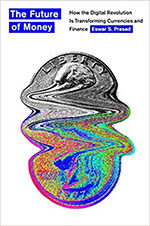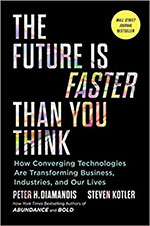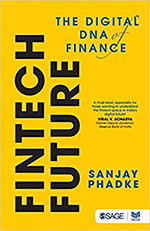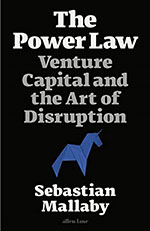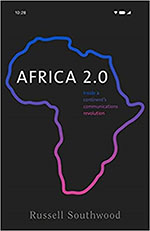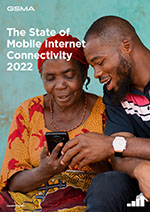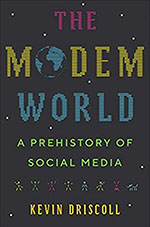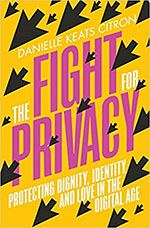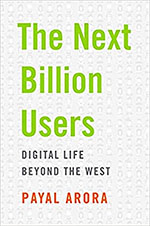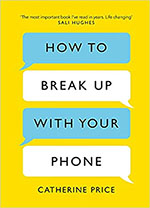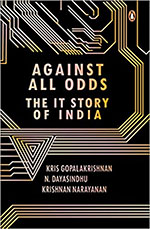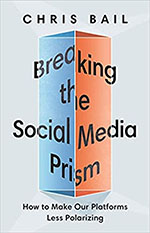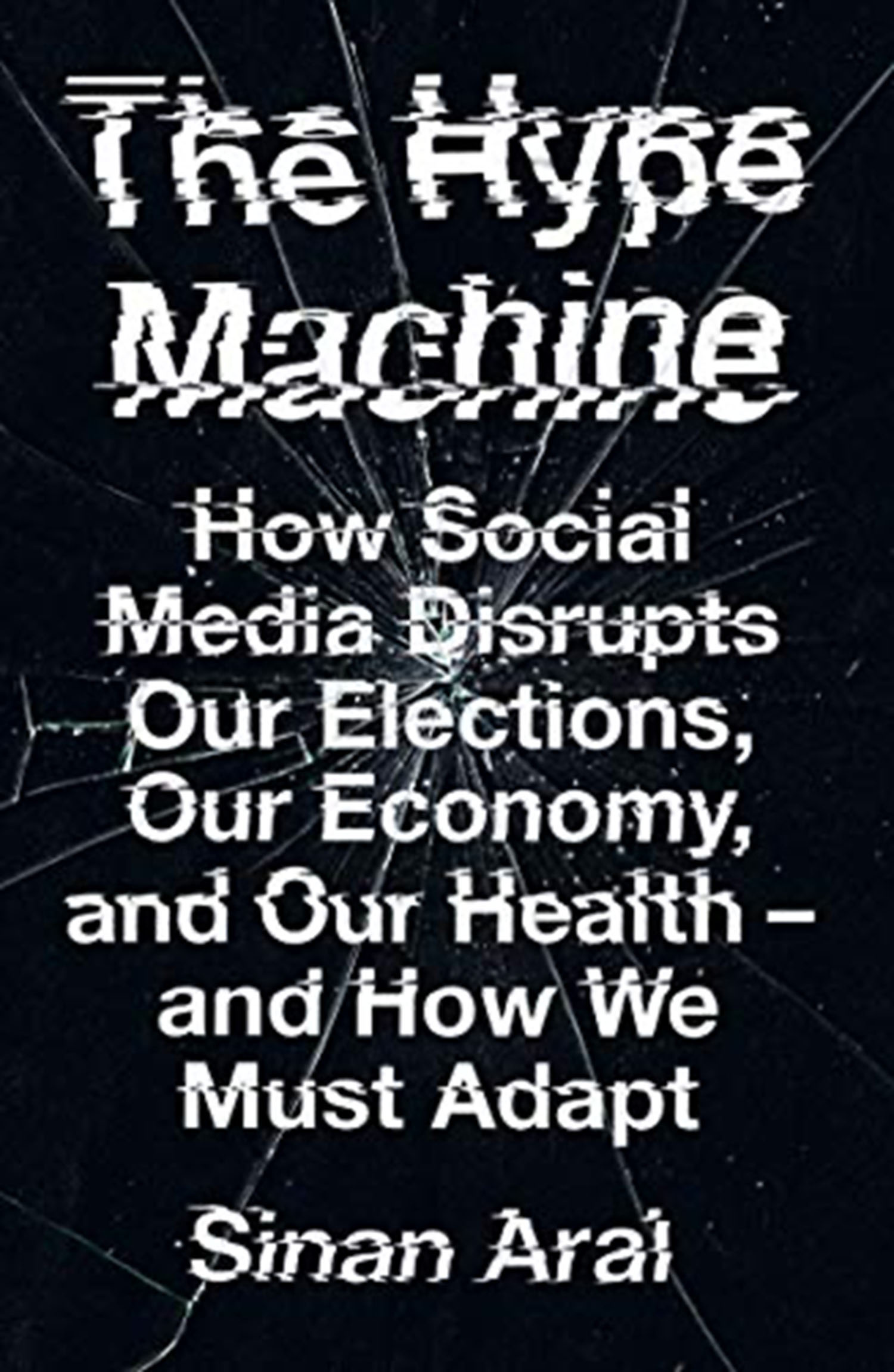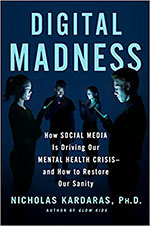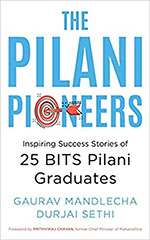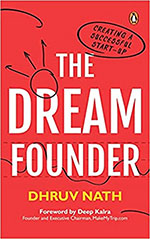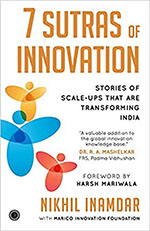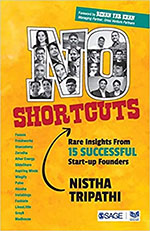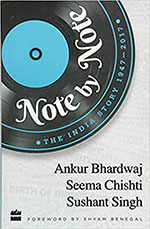Today, Artificial Intelligence is the dominant topic of discussion with questions about its expected rate of growth and its impact on various aspects of human life. The outcry over ChatGPT is just one of the many examples in our midst. People want to understand how AI is going to affect their lives and Toby Walsh’s book is an outstanding read which deals with this topic comprehensively, in a very easy to understand manner.
Archives
April 2023 . VOLUME 47, NUMBER 4At the meat of The Digital Ape: How to Live (in Peace) with Smart Machines lies the fundamental question that has been haunting us human beings for the last few decades—is Artificial Intelligence (AI) on the cusp of ‘waking up’ and consigning humans to the trash can? If you look at the rapid technological advancements that have taken place in the last 50 years or so, there is great evidence to suggest that the possibilities of AI are no longer restricted to the works of sci-fi, that there are actual reasons to base our fears on.
In September 2022, Apple launched the iPhone 14 and its different variants. The phone came armed with different chips, viz., A15 and A16. A15 was the lower spec version as it has 15 billion transistors while A16 carries 16 billion transistors.In 2019, the then-latest version of the iPhone (p. 11) carried the A13 chip.
In the 1970s, the possibility of India being a global information technology leader seemed like an impossible dream. In 1985, Texas Instruments was given a direct satellite link for round-the-clock communication with the US from Bangalore, enabling offshoring of software work. Still, the full potential of software services was not realized. So, when negotiating the Uruguay Round of trade agreements, in the 1990s, India was opposed to including trade in services which would have helped the software industry.
‘175 Zettabytes By 2025’ reads a Forbes headline from 2018, followed by ‘that’s how much data IDC estimates will be generated annually by 2025’. Evidently, Big Data is about to get a whole lot bigger, and the human race is already caught in a game of chase trying to identify patterns and correlations in the millions of data points collected daily.
What kind of built environment does democracy require? This question of critical importance is what Jennifer Forestal, political theorist, explores in her latest book.That digital technologies have transformed engagement of citizens in participatory democracy is a given in today’s world. While it is true that digital technologies have a pernicious effect on democracy,
In an era of unprecedented social, economic, and political change, what can we learn from established personalities, both past and present, about finding a purpose, making societal changes big and small, and creating environments in which we inspire others to do the same? Microsoft alumnus Akhtar Badshah seeks to give us an answer in his book Purpose Mindset: How Microsoft Inspires Employees & Alumni to Change the World, by looking closely at the spirit of giving back to the community within Microsoft’s internal network
The book Winning in the Digital Age captures the key nuances of how to make a turnaround in the direction of digital, highlighting the slightest pitfalls. Nitin Seth, having been in entrepreneurial roles in the digital landscape of large corporations as well as being a digital entrepreneur himself, tells the story of successes and the red flags from his own lens.
Richard and Daniel Susskind’s The Future of the Professions: How Technology will Transform the Work of Human Experts is an insightful analysis of the implications of emerging technologies on professionals and their work. The authors advocate for the ‘liberation of practical expertise’, the argument being that knowledge is concentrated in the hands of a few experts.
In Freedom to Think, Susie Alegre paints a dire picture of the state of intellectual freedom and free expression in the digital age. As a journalist and former editor at The Economist, Alegre brings a wealth of experience and insight to the topic, as well as a deep concern for the consequences of our increasingly digital lives.
You can’t write this book without pissing someone off, you know that, right?’ is how authors Rasmus Kleis Nielsen and Sarah Anne Ganter start their acknowledgement in The Power of Platforms. They speak to experts and analyse data to understand the ‘platform power’ that leading technology companies have come to exercise in public life.
Seldom do you find books that handhold you from demystifying a new concept to integrating it in your everyday life. The authors of Navigating the Metaverse have done a stellar job in simplifying metaverse terms, new economic opportunities and how we are evolving into the next generation of the web. The book provides a comprehensive and in-depth exploration of the rapidly expanding world of the metaverse, including its key components, the various technologies that are enabling its development, and the ways in which they are being used to create new forms of social interaction and commerce.
Simon Lindgren, the author of the book under review is Professor of Sociology at Umeå University in Sweden. The book is his research on the relationship between digital media and society with a particular focus on politics and power relations—a critical aspect of modern society which has also been under a lot of scrutiny globally in the last couple of years.
Eshwar S Prasad in his book The Future of Money gives us the tools to grasp how money will come to be used and viewed in the years to come, and explains in detail the social, political and economic ramifications it will have. He does this while harnessing multiple case studies of countries that have proved to be early leaders in adopting the Central Bank Digital Currency (CBDC) to support his claims.
The Future is Faster than You Think opens with a suitably futuristic scenario the authors Peter Diamandis and Steven Kotler say is playing out right now: the arrival of flying cars. ‘By 2027 or so, you’ll be able to order up an aerial rideshare as easily as you do an Uber today,’ they predict, ‘And by 2030, urban aviation could be a major mode of getting from A to B.’
The financial system across the world is at a cusp of another major transformation due to innovations of information technology called fintech and the spread of Internet. In his book Fintech Future, Sanjay Phadke has very elaborately and logically explained the changes that are brought about by the fintech revolution in different parts of the world.
Recent headlines on global internet companies have been far from positive. Internet technology companies have been accused of a long list of excesses with immesuarble harm to their users and society at large. These accusations include outright fraud, issues of privacy, censorship, platforming hate speech, snooping on activists by governments, the weakening of democratic institutions, the spread of manufactured fake news, and throttling of market competition.
Written over three decades, Africa 2.0: Inside a Continent’s Communications Revolution by Russell Southwood could well be an ethnographic book. Southwood takes us through the journey of Africa since 1986 when all of sub-Saharan Africa had fewer phone lines than Manhattan in New York. If someone in Africa wanted a fixed-line telephone connection in 1986, it used to take a minimum of two years.
A new report by the Groupe Speciale Mobile Association (GSMA), an association representing the mobile industry and its operators, on the state of mobile internet indicates an increasingly connected, if still woefully unequal, world.The report reveals that as of the end of 2021, 55% of the world’s population, or 4.3 billion people, were using mobile internet.
In the book The Modem World, Driscoll tells a coming-of-age story of the internet—he uses a crisp yet vivid narrative voice that has the potential to hook a techie and non-techie alike. The book fills an important gap in the cultural memory and theoretical literature of the internet by paying close attention to the Dial-Up Bulletin Board Systems (BBS).
As a child of the 80s the concept of how we consider and view privacy, I am increasingly realizing, is outdated and ‘so very last century’. As of this year I have lived more than half my life in this century and yet as technology consumes and propels most aspects of our lives I still think the right to privacy, intimate or otherwise, cannot and should not change.
For some time now, Silicon Valley has been obsessing over the next billion users. As mobile telephony becomes accessible along with cheap data—Jio, for instance, offers the cheapest data in the world—what kind of new markets will emerge in the global south, and how to parse the tech-consumption of the world’s poor to both enable them and profit off them.
The title How to Break up with Your Phone reminded me of an essay I had read many decades ago while in school. On ‘Not Answering the Telephone’ was a witty essay by William Plomer in which he expresses his dislike of owning a phone and discusses the inconveniences in having a telephone of one’s own. But the likeness ends there.
Against All Odds: The IT Story of India is written by Infosys co-founder Kris Gopalakrishnan together with N Dayasindhu and Krishnan Narayanan who have also been associated with Infosys in the past. Dayasindhu and Narayanan also run Itihaasa which is a non-profit funded by Gopalakrishnan and others to record oral histories of the people associated with the IT industry.
The internet has taken over unexpectedly and unwelcomed by many, but it’s here to stay. The pandemic has demonstrated how easy it is to access entertainment online, even when the world is shut down. However, the advertising industry seems stuck in a one-size-fits-all approach. While every brand has its appeal, they need to understand that every creator has their own appeal too. In the creator-verse, makers have created their own parallel universe of content, from everyday observational comedy to political satire to pranks.
Editorial
Chris Bail’s Breaking the Social Media Prism: How to Make Our Platforms Less Polarizing is an attempt at understanding and breaking the social media echo chamber. Bail is a Professor of Sociology, Public Policy, and Data Science at Duke University, where he directs the Polarization Lab. At the lab the team endevaours to diagnose the problems with social media platforms using scientific research and builds new technology to reverse the course. Over the years, the team has collected hundreds of millions of data points that describe the behaviour of thousands of social media users over multiple years.
Sinan Aral in his book delves into the complex relationship between humans and social media. He describes the communication ecosystem created by social media as the ‘Hype machine’ and examines its potential for both promise and peril. Aral provides an ‘insider perspective’ and offers insights on the inner workings of social media, while also addressing its impact on decision-making, choices, and society.
2022
It requires peculiar skill to write an empty book about one of the biggest burning issues of our time. Nicholas Kardaras’s tedious, grating and sermonistic Digital Madness riffs and rants on the ills of our hyper-connected digital-first world without offering new information or insight. It took me back to the early days of the pandemic when India’s Prime Minister Narendra Modi urged citizens to take a stand against the Coronavirus
The Indian start-up ecosystem is known for its cutthroat competition. With an increasing number of start-ups entering the market, the level of competition has become extremely fierce. It is not just about having a great idea, but also about executing it well, and that too in a crowded market. Entrepreneurs are constantly facing the challenge of standing out from the competition, and it can be difficult to attract the necessary investment and talent to grow their business. Additionally, the Indian market is known for its price sensitivity, which can make it hard for start-ups to build a sustainable business model.
At a time when India’s start-up scene is thriving and its founders are making headlines for their tenacity and inventiveness, this book, an engaging result of the ‘bearded professor’ generously spilling the beans on his decades of expertise, is a good addition to the literature for those of us who are interested in the nitty-gritty details of running a company.The author starts with the concept of a ‘Dream Founder’, taking us through real life stories of Instamojo and ‘iDream’, the latter a start-up providing educational solutions to rural India.
This winter when I came across an appeal for donation of woollens and other material from an NGO on an online platform, instead of scrolling down listlessly, I was quick to devise a plan to source these from my locality and deliver them to their centre. The trigger behind the action came from Nikhil Inamdar’s powerful narration of the organization’s backstory that created an understanding of how small steps can lead to a big impact for communities at large, in ways which we clearly are unaware of and perhaps too immersed in our urbane, rushed lives to care for.
Right off the bat, what makes Nistha Tripathi’s book stand out among others on entrepreneurial journeys is its sincerity. Through its 300-odd pages, and the conversations with 15 exceptional entrepreneurs, Tripathi manages to cull some remarkably perceptive observations about thinking like an entrepreneur and acting upon impulse and rational thought alike to create products and services that carry the stamp of extraordinary minds, be they ultimately successful or not.
If India had one film song as its soundtrack, what would it be? Jinhe naaz hai Hind par woh kahaan hai from Guru Dutt’s Pyaasa? It gets my vote, but it is a tribute to the richness of Hindi film music and to the depth of Note by Note: The India Story 1947-2017 by Ankur Bhardwaj, Seema Chishti and Sushant Singh, one of the most innovative books I’ve read recently, that it doesn’t figure as the song of the year in 1957. Another song from Pyaasa does, however, the brilliant Yeh duniya agar mil bhi jaaye toh kya hai, also written by the great Sahir Ludhianvi.
In May 2005, the mighty AC Milan considered to have the best defence in the world and had the best player in the world (Kaka), met with Liverpool Football Club, who were thinking how in the blue hell they were the finalists of the toughest football competition in the world, The Champions League. For those who don’t know, The Champions League final has as much viewership, if not more, as a FIFA World Cup final.
Editorial
Efforts to achieve justice and compassion for the protection and safety of animals have been ongoing. However, acts of violence towards animals continue to be rampant and prevalent. Activists, politicians, and people from all walks of life around the world have made everyday efforts to become the voice for voiceless animals and call for stricter rules and legislation.
Editorial
Reading books has been an essential part of human civilization for centuries. It not only provides knowledge, it enriches the mind, sharpens the intellect, and broadens one’s horizons. Famous authors, politicians, and scientists have all emphasized the importance of reading and its positive impact on one’s life. In this essay, we will explore the reasons why reading books is important and why it cannot be substituted by the internet.
Editorial
In the last two decades, Digital Empowerment Foundation (DEF) has brought out a variety of publications, including research, advocacy and impact-driven reports, books, papers, etc., related to technology and its impact on society, including misinformation, internet shutdowns, and the role of social media in people’s lives.
Editorial

